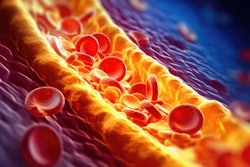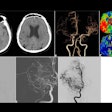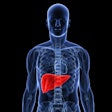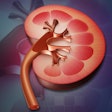Coronary artery calcium (CAC) scoring with CT can be useful in screening for coronary artery disease (CAD), identifying heart disease as early as decades before symptoms first appear, according to a review published March 6 in JACC: Cardiovascular Imaging.
A team of researchers led by Dr. Alan Rozanski of Mount Sinai St. Luke's Hospital in New York City reviewed five different clinical trials with a total of 4,615 participants who did not show signs of heart disease. Three of these trials used CAC scanning, while one trial involved cardiac stress imaging and one utilized noninvasive coronary CT angiography.
The researchers concluded there is now sufficient evidence to support the routine use of CAC scanning for screening in clinical practice.
"Importantly, the CAC score has become one of our most robust predictors of patient risk," Rozanski said in a statement from the American College of Cardiology. "Patients are at very low risk when the CAC score is 0 and at high risk when the CAC score is highly elevated. Any degree of CAC abnormality, however, even a CAC score of 1 or above, is sufficient reason for patients to adopt more heart-healthy behaviors."
The trials also show that it may be difficult to prove that the use of imaging techniques reduces cardiac death in clinical trials, as modern therapies have markedly reduced the frequencies for developing the most serious consequences of heart disease. As a result, investigators increasingly may be more interested in determining if CAC scanning and other screening techniques can improve the overall cardiac risk profile of patients without increasing medical costs.
One of the trials in the review -- the Early Identification of Subclinical Atherosclerosis by Noninvasive Imaging Research (EISNER) -- found that CAC scanning did achieve that goal. However, more studies in this area are still needed, according to the group.




















